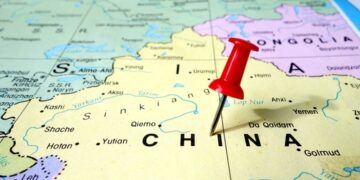Transport Malta has issued safety investigation report into the gas inhalation by seven crew members on board the Maltese registered oil/chemical tanker BOMAR MERCURY in the port of Rotterdam, The Netherlands on 21 July 2015.
The Maltese flag chemical carrier Bomar Mercury had loaded a cargo of Aniline in Tees, UK from 1625 on 17 July 2015 until 1705 on 18 July 2015, spending 31 hours in port before sailing to Rotterdam Vopak Terminal on 19 July 2015. Upon arrival, the vessel carried out the normal procedural checks for cargo discharge operations, which started on 20 July 2015. Cargo discharge and a follow up ‘commercial wash’ were completed at 2300 on 20 July 2015, followed with the disposal of cargo tank washing water to slops tanks ashore. On completion of the commercial wash and receiving an empty cargo tank certificate, the vessel embarked a pilot at 0200 (21 July 2015) and proceeded to Botlek Lay-by Buoy No. 61, arriving and declaring all fast at 0400.
At 0500 on 20 July, the vessel commenced cleaning procedures in preparation for the loading of the next cargo – gasoil. The cleaning operations were completed at 0830 before the commencement of the ventilation procedures. The crew members had to access the cargo tanks to ensure that all traces of the previous cargo had been removed by means of an air driven pump. At about 1130, atmosphere monitoring was carried out and recorded as being safe for the cargo tank entry. Four crew members were detailed to carry out these final cleaning checks and to enter the cargo tanks under the enclosed space permit-to-work procedures.
During the afternoon, two crew members started feeling unwell and had to be attended by the other crew members. Oxygen was also administered. Eventually, the master contacted the agent to request shore medical assistance. By 2000, the injured parties had been disembarked and transferred to a local hospital. Other crew members visited the hospital for precautionary checks, but were subsequently cleared to return to the vessel. Subsequent attendance by port State Control resulted in the vessel attracting two Code 17 deficiencies under Code 04118 – Enclosed space entry and rescue drills, a general heading of ‘Lack of training’ in accordance with SOLAS Chapter III – 19.3.6.2 and Code 15150 – ISM under ISM regulation 1.2.2.2. The vessel was also detained.
Findings:
The safety investigation concluded that the immediate cause of the intoxication was exposure and subsequent contact with Aniline cargo, either through skin absorption or inhalation.
- At least one of the cargo tanks accessed by the crew members still had traces of Aniline cargo inside following the cleaning process;
- Cargo tank cleaning documents and instructions available on board did not give any real indication of the time required to thoroughly clean a cargo tank;
- Relevant crew members lacked the necessary knowledge on the different modes of cargo tank washing systems and the likely efficiency of the different modes;
- The vessel carried cargo tank cleaning documents and guidelines which seemed to provide contradicting information, some of which focusing on efficiency rather than thoroughness;
- The vessel applied the pre-wash procedure only, in all probability because it was the only cycle which completed cleaning in the time required by the charterers;
- The fact that cargo tank no. 2 starboard had shadowed areas of 38.5 m 2 and which could not be cleaned by the fixed cargo tank cleaning machines, did not seem to have been appreciated by the crew members;
- The vessel did not have information which specifically defined the duration of the cargo tank ventilation prior to safe entry;
- The relevant crew member seemed to lack the necessary knowledge on the correct sampling method of the cargo tank atmosphere;
- The MSIU was not convinced that the crew members were fully aware of the dangers of exposure to Aniline;
- Considering that the personal gas detectors and safety harness were not used, it may be suggestive that the risk of gas was not appreciated and the availability of BA sets was more of a formality rather than a specific action to have a protection barrier system readily available.
Recommendations:
In view of the conclusions reached and taking into consideration the safety actions taken during the course of the safety investigation,
- Armona Denizcilik A. S. is recommended to:
15/2016_R1 ensure that crew members are well informed in good time on the characteristics of the cargoes which the vessels would be scheduled to carry.
15/2016_R2 revisit the procedures available on board with respect to cargo tank washing in order to eliminate potential conflicts created by different information sources. - Drägerwerk AG & Co. KGA is recommended to:
15/2016_R3 amend the instructions for the use of the Dräger tubes in order to eliminate multiple interpretations of the text.
Further details may be found in the investigation report below
Source & Image credit: Transport Malta


































































